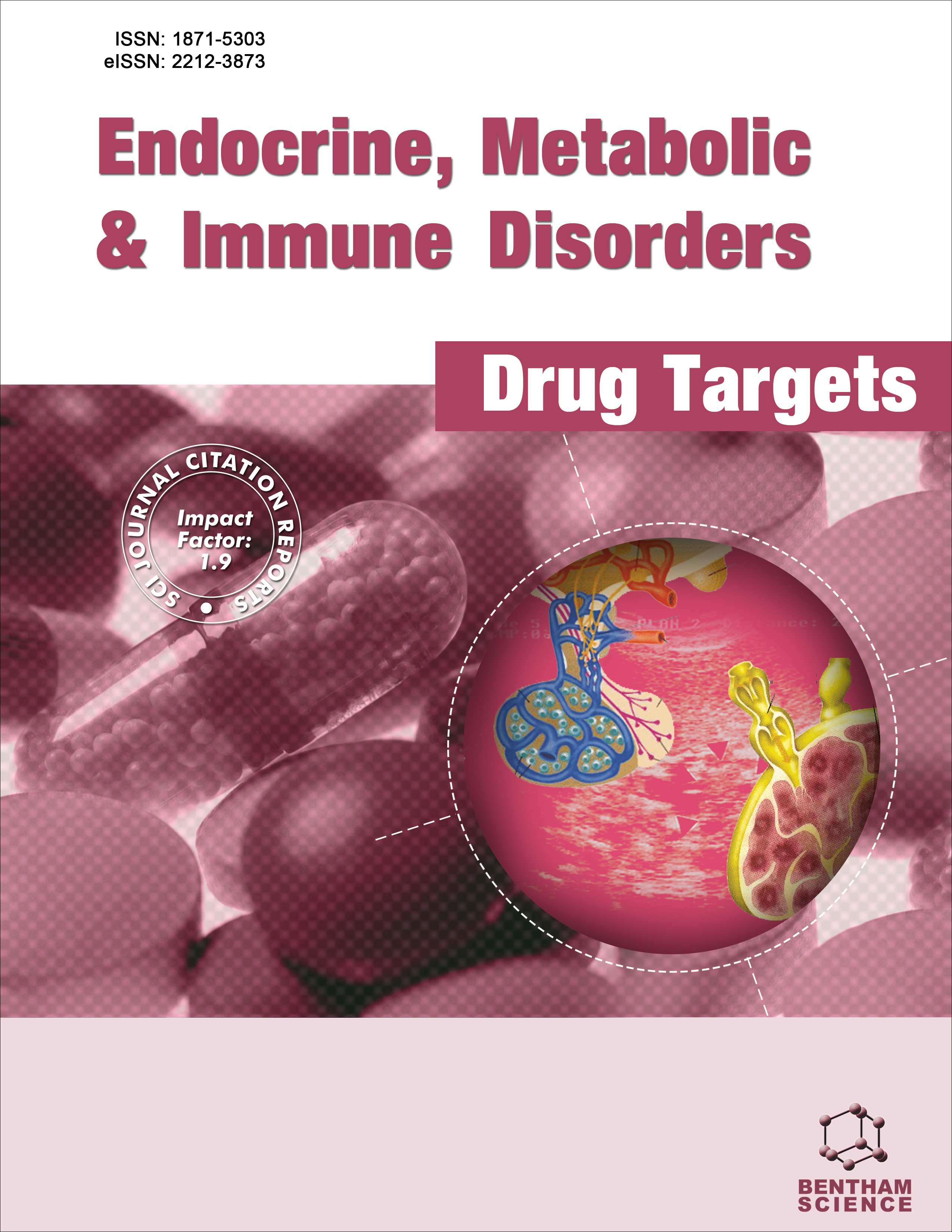-
s MiR-29b Alleviates High Glucose-induced Inflammation and Apoptosis in Podocytes by Down-regulating PRKAB2
- Source: Endocrine, Metabolic & Immune Disorders-Drug Targets, Volume 24, Issue 8, Jun 2024, p. 981 - 990
-
- 01 Jun 2024
Abstract
Background: Podocyte injury and inflammatory response are the core contributors to the pathogenesis of diabetic nephropathy. This study aims to identify novel regulatory miRNAs and elucidate their underlying mechanisms, which will help us understand the pathogenesis of diabetic nephropathy more comprehensively. Materials and Methods: Different glucose concentrations were used to treat podocytes to mimic the pathology of diabetic nephropathy in vitro. Flow cytometry was used to determine cell apoptosis. Inflammatory cytokines released by podocytes were measured by using an enzymelinked immunosorbent assay (ELISA). Western Blot was used to detect the expression of PRKAB2 protein in podocytes. Results: Genecard and g: profiler results revealed that miR-29b might be involved in regulating HG-induced cell injury. QRT-PCR indicated that HG-induced downregulation of miR-29b in podocytes. MiR-29b knockdown promoted cell apoptosis and inflammatory response in podocytes. MiR-29b overexpression repressed cell apoptosis and inflammatory response induced by high glucose treatment in podocytes. Luciferase reporter assay and Western Blot showed that miR-29b targeted PRKAB2 to negatively regulate PRKAB2 expression directly. Knockdown of PRKAB2 reversed the increased cell apoptosis and inflammation induced by miR-29b inhibitors. Conclusion: MiR-29b plays a role in inhibiting inflammation and apoptosis in high glucose (HG) treated podocytes by negatively regulating PRKAB2 expression. This study provides new potential targets and ideas for the treatment of diabetic nephropathy.


